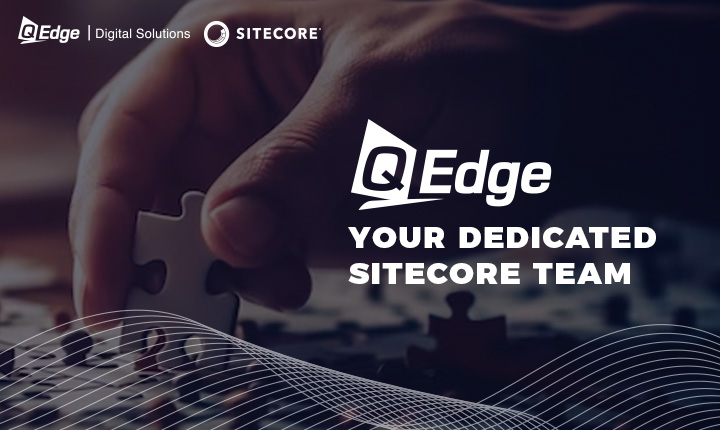Sitecore Enterprise Content Management - Taming the digital content beast.
Enterprise content management (ECM) software has become an invaluable tool for businesses looking to effectively manage their digital content. ECM platforms allow organizations to centralize their content, collaborate across teams, automate workflows, and gain valuable insights. One of the leaders in the ECM space is Sitecore - a .NET-based platform that provides robust capabilities for managing content, analytics, personalization, and multichannel digital experiences.

In this article, we'll take an in-depth look at Sitecore enterprise content management and explore the key features and benefits it offers for enterprise content management. Whether you're considering Sitecore or want to better understand its value proposition, this overview covers what you need to know.
An Overview of Sitecore Enterprise Content Management
Sitecore is an end-to-end ECM platform built specifically for managing complex digital experiences across multiple channels and touchpoints. It gives marketing and content teams an intuitive, centralized interface to create, customize, automate, and optimize digital experiences.
Some of the core capabilities include:
- Content authoring - The Content Editor provides WYSIWYG editing tools and drag-and-drop functionality for creating and managing content. Role-based access controls who can edit and publish content.
- Digital asset management - All digital assets like images, videos, and PDFs are stored in a central media library with metadata tagging and search.
- Personalization - Content and experiences can be personalized for specific segments and individual users based on interests, behavior, location, etc.
- Analytics - Detailed analytics track every user interaction and campaign performance, informing optimization.
- Multichannel publishing - Content is managed in a central repository and can be output dynamically to websites, mobile, email, IoT devices, etc.
- Workflow automation - Workflows route content through review, approval, translation, and publishing processes.
- Integration - APIs and connectors allow Sitecore to integrate with other Martech and enterprise systems.
Together this gives marketing and content teams end-to-end control over the content lifecycle while optimizing customer experiences.

Key Benefits of Sitecore Enterprise Content Management
There are several advantages that Sitecore provides for enterprise content management:
- Centralized Content Hub
Sitecore consolidates all text, images, documents, and other media into a single central content repository. This ends frustration with scattered, siloed content across folders, servers, and platforms. Everything is managed through a unified interface.
Content authors simply log into Sitecore and access the relevant content - no more hunting across different systems. This simplifies content collaboration across distributed teams. It also ensures brand consistency since everyone works from the definitive source.
- Contextual Content Authoring
Sitecore provides an intuitive, Word-like authoring environment. Content editors can instantly see how content will appear in context across different devices and channels. Authors simply click over to the Experience Editor to preview content exactly how it will be seen by customers.
This contextual editing and previewing results in higher-quality content. Authors can fine-tune content for each channel and catch issues before publishing.
- Personalization
Sitecore makes it easy to create personalized content for different audiences. Content authors can define granular personalization conditions based on profile attributes, behaviors, geo-location, etc. Specific content then displays for different user segments.
This not only improves customer experience, but it boosts engagement and conversion rates. Visitors see content relevant to their interests and context. Personalization drives ROI - companies see $20 in revenue for every $1 invested in personalization.

- Workflow Automation
Manual review and approval processes bottleneck teams and delay publishing. Sitecore includes robust workflow tools to automate these processes.
Workflows route content through all required steps and appropriate approvers automatically. This takes the burden off content teams so they can focus on creating. Automation also reduces human errors that occur with manual hand-offs between teams.
- Multichannel Content
Sitecore’s single content repository publishes to any channel - websites, mobile, email, IoT screens, etc. This omnichannel publishing ensures a consistent customer experience across touchpoints.
Without a unified ECM, content gets fragmented across channel-specific CMSs. This results in outdated, inconsistent messaging that damages the brand. Sitecore’s centralized content eliminates these problems.
- SEO and Metadata
Sitecore optimizes content for search visibility. Authors can add SEO titles, metadata, and ALT tags. The platform handles technical best practices like semantic markup, clean URLs, site mapping, etc.
Read More: Why is Sitecore Good for SEO
Optimized metadata and markup improve search engine visibility. Sitecore also integrates with marketing automation platforms for managing paid search and social campaigns.

- Insights and Analytics
Sitecore captures extensive analytics on content performance and customer engagement through its Experience Database (xDB). Teams gain actionable insights to optimize content and personalization.
Analytics reveal high-value topics and content gaps. Teams can address these issues rather than relying on hunches. Sitecore analytics tie content performance directly to business goals like campaign ROI and conversion rates.
- Developer Extensibility
Sitecore is built on .NET with an open architecture. This allows developers to extend functionality through APIs, custom modules, and third-party integrations.
Developers can build custom applications, integrate external data sources, modify workflows, and handle complex implementations. Sitecore strikes a good balance between out-of-the-box power and customizability.
- Cloud-based Delivery
Sitecore offers a managed cloud hosting option via the Sitecore Experience Platform (XP). This is ideal for organizations that want to avoid managing in-house production infrastructure.
The cloud platform offers high scalability, built-in security and backups, and multi-geo availability. Marketing and IT teams can focus on strategy rather than servers and uptime. Cloud also streamlines launching new sites and environments.

Conclusion
Sitecore excels as an enterprise CMS thanks to its unified digital experience platform. Leading organizations trust Sitecore for its content management capabilities coupled with analytics, personalization, and omnichannel publishing. This enables agility in managing content while optimizing customer experiences.
From intuitive authoring to workflow automation to actionable insights, Sitecore provides end-to-end ECM. It consolidates the content lifecycle onto a single .NET platform that can scale from simple departmental needs to global enterprise implementations. To hire a Sitecore developer, you need to be careful. In an increasingly digital world, Sitecore Enterprise Content Management gives organizations the control and visibility required to effectively manage content across channels and regions.






